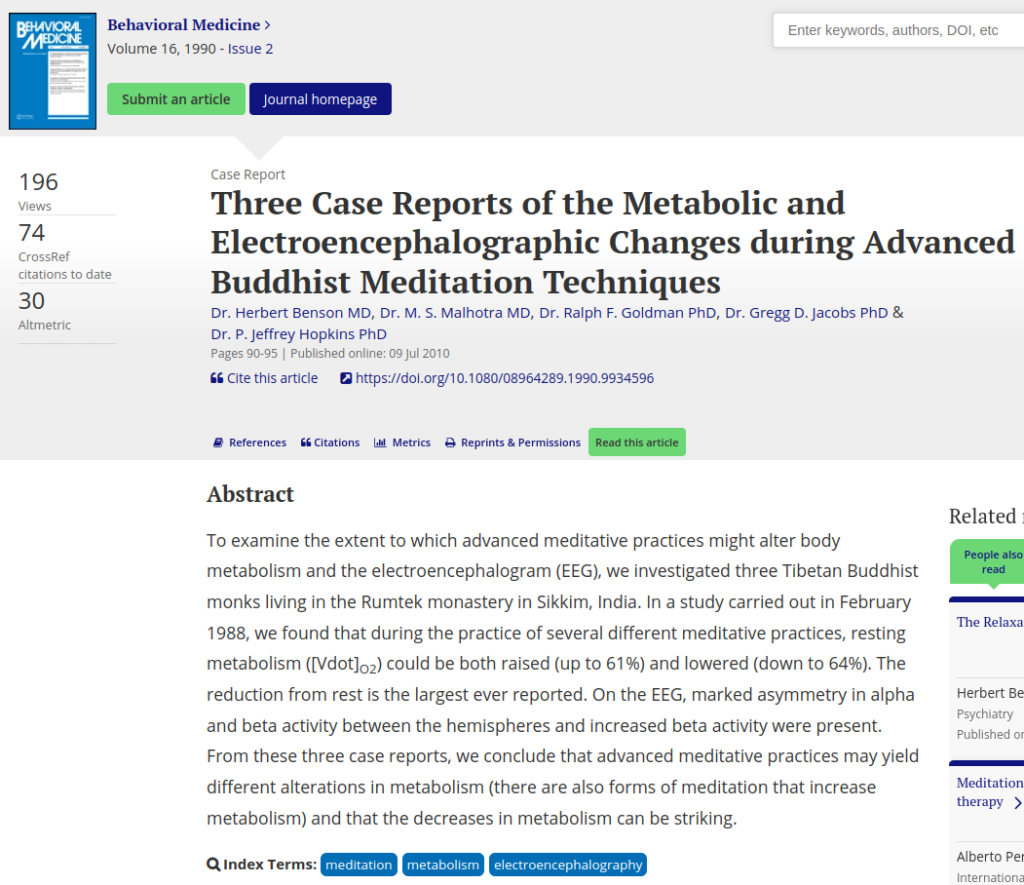To examine the extent to which advanced meditative practices might alter body metabolism and the electroencephalogram (EEG), we investigated three Tibetan Buddhist monks living in the Rumtek monastery in Sikkim, India. In a study carried out in February 1988, we found that during the practice of several different meditative practices, resting metabolism ([Vdot]O2) could be both raised (up to 61%) and lowered (down to 64%). The reduction from rest is the largest ever reported. On the EEG, marked asymmetry in alpha and beta activity between the hemispheres and increased beta activity were present. From these three case reports, we conclude that advanced meditative practices may yield different alterations in metabolism (there are also forms of meditation that increase metabolism) and that the decreases in metabolism can be striking.
Three Case Reports of the Metabolic and Electroencephalographic Changes during Advanced Buddhist Meditation Techniques
Publication
Behavioral Medicine
Volume 16, Issue 2
Abstract
Related Listings
Journal
International Journal of Cardiology
We report extremely prominent heart rate oscillations associated with slow breathing during specific traditional forms of Chinese Chi and Kundalini Yoga meditation techniques in healthy young adults. We applied both spectral analysis and a novel analytic technique based on the Hilbert transform to quantify these heart rate dynamics. The amplitude of these oscillations during meditation was significantly greater than in the pre-meditation control state and also in three non-meditation […]
Journal
Journal of Research and Development in Education
Evaluated self-esteem and locus of control in a group of high school students prior to, during, and following a single academic year. Using a randomized, crossover experimental design, 26 Ss were exposed to either a health curriculum based on elicitation of the relaxation response (RLR) and then a follow-up period, while 24 were assigned to a control health curriculum and then the RLR. Psychological testing was conducted using the Piers-Harris Children's Self Concept Scale and the Now […]
Journal
Science
Sympathetic nervous system activity was assessed in experimental and control subjects who were exposed to graded orthostatic and isometric stress during monthly hospital visits. After the first session, the experimental subjects practiced a technique that elicited the relaxation response. Their concentrations of plasma norepinephrine during subsequent graded stresses were significantly higher. No such changes were noted in the control group. These results were then replicated in the c […]

